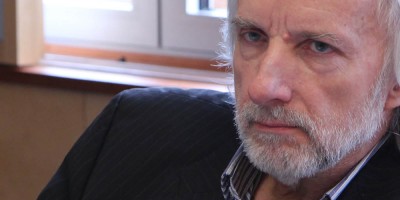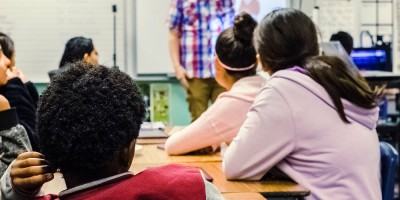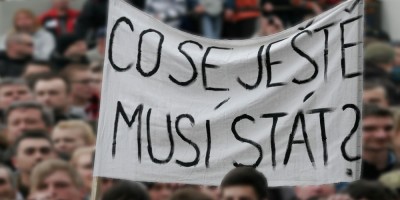
bad communication
opposition to inclusive education arises in part from sloppy communication
Folksy definitions describe democracy as “rule of the people“. “Free” and “fair” elections, in fact, are a necessary but not a sufficient condition for its preservation. More robust definitions, therefore, demand also the existence of liberal institutions: state power is split between multiple bodies which can challenge one another (checks and balances) and civil service is independent, everyone is accountable to impartially applied laws (rule of law), individual rights like freedom of speech and the press are guaranteed. Preservation of norms that ensure the state and the ruling party do not coalesce in one is an expression of a simple quid pro quo pursued by the players competing for political power: each agrees to protect the others’ rights in exchange for the recognition of entitlement to govern if they win an election.
This emphasis on liberal institutions reflects the contemporary dominant trend which is the hybridization of regimes. Between 1989 and 2019, electoral autocracy has been by far the fastest-growing regime type, now characterizing 67 countries according to V-Dem, the most rigorous project tracking the quality of democracy globally. The EU, too, now has its first non-democratic member, Hungary. At the same time, many self-serving rascals experience sizeable pushbacks: in 2019, citizens staged mass protests in 34 autocracies.
The boundary between news and views has blurred after the late 1990s. Opinion journalism became prominent. So did clickbait, bringing challenges to public life additional to plain lies and disinformation. In Central Europe, the retreat of quality journalism was aided by transfers of ownership from Western publishing houses to local business tycoons with primary interests in industries other than media after the 2008 financial crisis.
In contrast to the US, however, European media usually remain less polarized and enjoy broadly similar trust as 20 years ago. One exception is the news in the Czech Republic and Slovakia, trusted only by 33% of citizens according to the 2019 Reuters DNR. Trust is even lower in Hungary, where the government consolidated much of the private media market into a “coordinated propaganda machine” by late 2016. To achieve such control, ruling parties often use state advertising as a bargaining chip. In Poland, propaganda is limited to the state television, which summarily fired 220 journalists in early 2016.
Suppression of the free press is much less concealed in Russia where 58 journalists had been killed between 1992 and 2019. Labelling journalists as “traitors”, which can embolden assassins, has been adopted even by some politicians in the EU. Daphne Galicia and Ján Kuciak were murdered in 2017 and 2018, respectively. An increase in international cooperation on investigative projects like OCCRP, however, makes the investigative community more resilient against attacks on individuals. And the readers are widely becoming willing to pay for quality content.
Eking out earlier hoaxes and self-serving conspiracy theories, the European advent of disinformation-spreading websites started in 2013. Only until 2019, dissemination of misleading pro-Kremlin information spread wilfully to achieve political aims affected 16 elections in the EU according to Jakub Kalenský‘s testimony to the US congress. In 2018, the US special counsel Robert Mueller indicted multiple Russian actors, including the infamous “troll farm” in St. Peterburg, for interfering in the US elections.
Rather than coordinated strictly in line with a “doctrine”, the machinery is fragmented. According to a big data analysis by Semantic Visions, 60% of Czech online content aimed against the country’s membership in the EU or NATO is created by 22 websites under Russian influence. Contemporary leitmotifs in the domain of deceptive information include “Western decay”, “poisonous” minority protection and “devastation of Europe” by migrants. Instead of naming concrete sources, disinformants often refer to “many experts” or say “it is widely known”. Disinformation is often spread unknowingly by influential opinion-makers. By its nature, it cannot serve to provide an “alternative viewpoint”, neither it is a Soviet-style “propaganda” celebrating the Russian government. Instead, a bulk of disinformation creates an impression that to know what is true, is impossible.
Although many EU states have been slow to expose those behind disinformation to criminal liability, much has been done. Awareness about disinformation is being increased worldwide by the Atlantic Council’s Disinfoportal. In Europe, disinformation is being tracked by EU’s Stratcom. Czech students are being educated by ZvolsiInfo. The reputation of local companies who may inadvertently be co-funding disinformants through advertisement is looked after by Konspirátori.sk.
Populism is primarily a style of communication. From the mainstream politicians, populists differ by their claim that only they represent the general will of (the real) people. They do not strive to build consensus. They do not distinguish between opponents and enemies. They speak the language of the people. They use but also manufacture crises to justify the call for revolt against the establishment. Although some of them pursue nativist agendas, many populists differ from nativists.
Once in power, populists often blame the opposition, foreign powers and minorities for various ills. They tend to clash with courts, media and other institutions the role of which is to preserve a political regime in which no man or party has a licence to be left unchallenged. Often but not always, the populist engagement ends up in bitter irony: they commit the same political sins of which they accuse elites which they have themselves become – they do not count with the citizens who do not vote for them and capture the state.
The share of populist parties in parliaments started to increase in the 1980s, when the side effects of technological changes and globalization started to deepen domestic inequality. The backlash against changes in social values may have contributed. The demand for populism tends to be pushed by demographic factors like unemployment, lower education, residence in the countryside, older age and – very often – voter‘s manual work. Populists get more votes also in regions affected by industrial decline. This applies to the Czech regions of Silesia and Ústecko, bested also by a high number of distraints. Elsewhere, factors unique to a given country can contribute significantly. In the UK before Brexit, for instance, this was high immigration in a short period.
Portraying migrants as parasites exploiting the generosity of the German welfare system is baseless and misleading. Economic studies show that in the long term, the economy benefits – or, at least, tends not to lose from the presence of migrants. There is no research whatsoever that would prove it should be any different if the migrants come from “distant cultural spheres“. In the short term, however, migrants may represent a small burden for the public budget. Also, if retraining opportunities are poor, unlimited migration can put low-skilled domestic workers at risk of short-term unemployment or at least a minor reduction in wages.
Since 2015, many of the most widely shared news about refugees and migrants have been completely made up or distorted. Many of them originated on Russian government-controlled or obscure websites affiliated to the disinformation campaign. In some cases, such misinformations have been cited by Czech politicians and republished in the Czech media. In September 2015, the management of TV Prima, the third most watched TV in the Czech Republic, acted against professional standards by instructing its reporters to portray refugees as a danger in the news.
Some of the most prominent biases that may affect our judgement about refugees and migrants are negativity bias and selective perception. The first one describes a finding that negative (threatening) stimuli often impress people more strongly than positive or neutral ones. Selective perception represents a tendency to give more weight to expected over surprising information. To fact-checkers, it is important to know that a confrontation with a correction may easily strengthen people’s previously held beliefs. Therefore, fact-checkers must use strategies that alleviate this backfire effect.
The risk of death by terrorism in Europe today is significantly lower than it was in the 1970s when Europe was experiencing attacks by ETA, IRA, Red Brigades and Red Army Faction. An average European is more likely to be killed by lightning than by a terrorist. The danger exists nevertheless. Analysis of volumes of extremist literature and interviews with thousands of former and current terrorists show that devout Muslims tend not to become terrorists. Terrorists usually find faith only after joining jihadist networks. This should inform the debate about the prevention of radicalisation and counterterrorist measures.
The Quran is written in idioms and is riddled with assumptions of ancient societies. Like the Bible. In the battle of the holy books, the Quran has one disadvantage: Only about 20% of Muslims speak Arabic as their first language. Yet since Muslims usually consider the Quran to be a literal message from God to Muhammad, Muslim scholars are reluctant to translate it. The worldwide distribution of the Quran today is led by Saudi benefactors. This invites controversy since the influential translations may be biased toward Wahabbism, a rather less tolerant brand of Islam prevalent in Saudi Arabia. Christian interpreters, on the other side, have a history of mistranslating Islam with the express purpose of discrediting it. Ultimately then, the key question may not be what is written in a particular translation of the Quran but what do Muslims say the Quran says.
Some of the prominent pitfalls of judgement likely to affect the debates about Islam include so-called attribution bias and naive realism. The first trap describes a tendency to attribute an outcome to choices of involved actors even though evidence suggests an influence of external triggers and constraints. Such bias thus may for instance contribute to the notion that the lower standard of civil liberties in the Arab part of the Muslim world is the result of the free choice of Arab Muslims. Naive realism then stands for a general disposition of debaters to assume that those who disagree with us must be uninformed, stupid or biased.
Studies suggest that almost all children, including the Roma or the children with moderate disabilities, can benefit both socially and academically from inclusive schools. Much of the public thinks otherwise. Largely, it is because most parents are misinformed, and most teachers have been left to cope with new challenges on their own. In some regions, Czech Roma students often continue to be sent to primary schools for intellectually disabled. Their placement in less demanding schools may well be the biggest factor behind their comparably higher unemployment. Meanwhile, salaries of Czech teachers remain the worst among all OECD countries. Without a credible commitment to a continuous salary increase, pedagogical faculties will remain to be the first choice only for less talented applicants. Meanwhile, a model from IDEA CERGE-EI has shown that an education reform could increase the gross natinal product by 150 billion Kč (€ 5.5 billion) annualy.
Gypsies/Roma have a history of persecution going back to 15th century. For their belonging to an ethnic group, they faced sanctions ranging from eviction to whipping to death sentence. Between 220,000 and 500,000 Roma were killed during the Holocaust. Czech officers run two Roma concentration camps. Under communism, many were forcefully resettled into regions heavy in manual labour that faded in the 1990s. Today, the Roma have elites. But many others remain poor, badly educated and unemployed. All continue to be shunned: in an experiment by CERGE-EI, candidates with Roma-sounding names were twice as unlikely to be invited for a job interview by employers or invited for an apartment viewing by landlords.
People sincerely antipathetic towards the Roma often say they rely on unfavourable experiences with a life along their side.” But the antipathies do not result only from experience and often unverified gossip. If Non-Roma want to see a Roma justly, they must actively resist mechanisms of prejudices such as the out-group homogeneity bias. This bias represents a double standard because of which people differentiate well in the behaviour of members of the group in which they feel at home (in-group) but tend to see the acts of members of a foreign group (out-group) as common to them all. Another important condition of a productive debate about topics related to the Roma is to differentiate between the disagreements about realities and the disagreements about causes: for instance, claims about the level of un/employment of the Roma and the factors that affect the un/employment of some of them.

opposition to inclusive education arises in part from sloppy communication

studies show inclusive education can be beneficial to all

false testimony of a mousy boy awoke memories of a pogrom that left 40 Jews dead

see what factors predict labour activity of the poorest third of the Czech Roma
one thing is clear: neither refugees or regular migrants are lured by social benefits
how a Czech economic journalist believed that empirical research supports ideas about malignity of current migrants and cultural superiority of Czechoslovaks
a thorough Datalyrics study about the differences in Hungarian and Polish propaganda, robust television reporting on migration and organizational practices that underpin the different styles
instead of blaming the Quran for domestic violence, Czechs could translate it better and stop pretending that violence against women is characteristic for Muslims